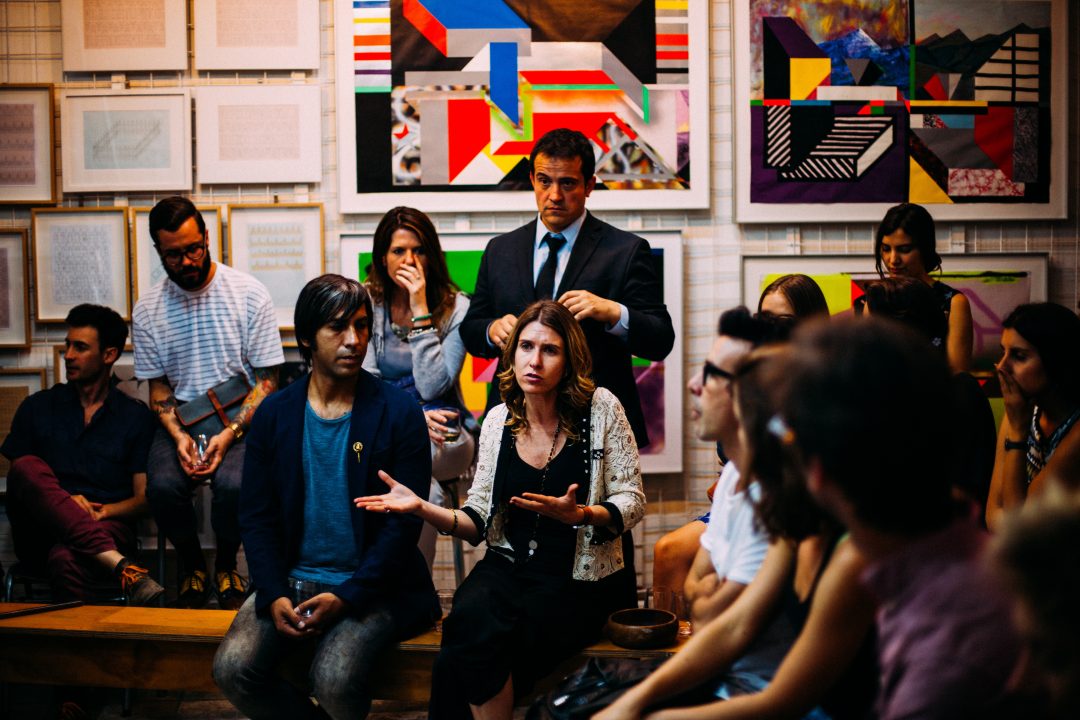Regardless of the class I am teaching—whether it’s Social and Political Economy, Globalization and Justice, or even History of the Middle East—I begin and end the semester with a conversation about what I think are really important learning goals. Yes, each class has its own particular learning goals, like “develop an understanding of the complexity of political and social forces in shaping the global economy.” But I have discovered that I have a couple of learning goals that cross all of the classes I teach, learning goals of self-reflexivity and critique. And so we always spend time in our first class together to identify some questions that help us get at those goals.
For example, in our efforts to be more self-reflexive, we ask questions like “Where do I stand, what’s my ‘location,’ in this conversation or debate? And whose voice and experience are we centering and decentering in this conversation?” And in our efforts to hone our critical thinking skills, we ask questions like “Who benefits from this situation, this institution, system, or narrative?”
I was reminded of how important these questions, and these learning goals, can be as a scholar as well after reading the Washington Post article “Even progressive academics can be racist. I’ve experienced it firsthand.” In that piece, Meg K. Guliford, a PhD candidate at The Fletcher School at Tufts University and a Minerva/Jennings Randolph Peace Scholar at the United States Institute of Peace, recounts her experience this past spring at the annual conference of the International Studies Association (ISA) in San Francisco. Guliford tells the story of how she, a junior scholar on war and violence and a black woman, was—not once, not twice, but three times during the same evening reception—mistaken as hotel staff and asked questions like “when are you going to bring out more appetizers?”
Guliford shares that this experience was unfortunately not unique. Even at her home institution, she experiences a pattern of “daily slights,” for example, being asked which faculty she provides administrative support for or being referred to by the name of another black woman who completed her PhD at the school two years ago. Then Guliford goes on to say that
“It’s not being mistaken for a member of the support staff that troubles me, but what that mistake means. Whether they mean to or not, my fellow academics are betraying a toxic assumption: Even as I move about a university with a messenger bag over my shoulder and a stack of books in my arms, they refuse to see me as a member of the professional and intellectual community I’ve worked to join.”
And yet, what is most frustrating for Guliford, especially with incidents involving faculty, is that our very training is supposed to make us aware of these pitfalls. Guliford points out that
“academic training demands that we examine our research for its implicit biases. Recognizing bias and being able to articulate the implications of that bias as well as the means by which the researcher will attempt to mitigate the effect of the bias is a fundamental principle of sound social science research… Despite that, we’re not required to summon the courage and examine ourselves for that same bias, which is likely to influence our interactions with others.”
This is a critical point and signals an important way forward for all of us—whether we are scholars, teachers, or students—namely, “that things will get better for all of us,” Guliford says, “when my fellow scholars start to recognize that, more often than not, people belong in the place where you encounter them, whether it be a public space or on the job.”
“It’s clear,” Guliford concludes, “that many within our profession still need to look within.”
I think this underscores the importance of the learning goals of self-reflexivity and critique that we discuss in class at the beginning and end of every semester. It is a challenge not only to our learning in the classroom but our engagement outside of the classroom. What changes would you recognize in yourself if, as you looked around you throughout your day, you started with the assumption that people belong in the place where you encounter them?
Timothy Seidel is assistant professor and coordinator of the Peacebuilding and Development (PXD) program at Eastern Mennonite University.
